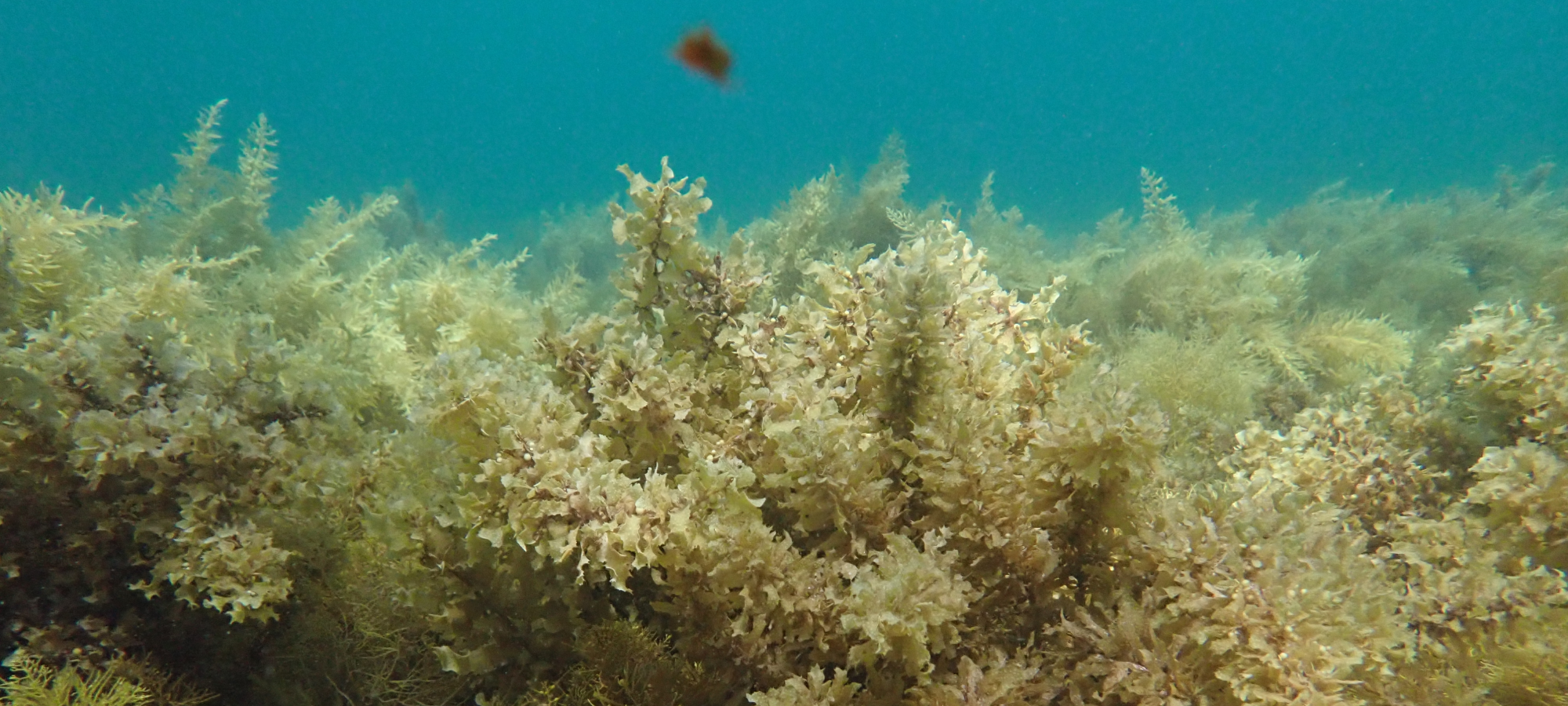AIMS scientists have completed the first in a series of planned field trips to Western Australia’s tropical seaweed meadows to understand the nutrient levels required to maximise growth of Sargassum (a common tropical seaweed).
The trip was part of the Blue Carbon Seascapes project to find out if Sargassum can provide a nature-based solution to help reduce climate change impacts by storing carbon.
Senior research scientist Dr Shaun Wilson said that to assess seaweed’s carbon capture potential, the team needed to establish if environmental levels of nutrients (nitrogen and phosphorus) were adequate for maximum growth.
Over the next few months, the nutrient content of Sargassum samples will be estimated to determine how requirements change over the spring and summer.
“On our first trip to Ningaloo we collected Sargassum from different areas to see how nutrient levels differ among locations,” he said.
“We’re also hoping to get samples from the Exmouth Gulf and maybe Port Headland to compare with data from Ningaloo.
“We’re looking to establish the baseline for these elements as well as the optimal capacity for Sargassum growth without taking nutrition from other parts of the ecosystem.”
Dr Wilson said Sargassum growth fluctuated throughout the seasons. The first trip was in Spring as that was when Sargassum typically began its annual growth, which usually peaked in February.
“Sargassum foliage then breaks off in autumn,” he said. “As a part of the Blue Carbon Seascape project, we’re trying to find out where this foliage goes and if it gets sequestered.”
The team also took water samples, which will be evaluated in conjunction with the seaweed samples to understand spatial and seasonal differences in nutrients present in the environment.
The five-year $20M Blue Carbon Seascapes project, co-funded by AIMS and BHP, began in 2023.
Banner image: Shaun Wilson


